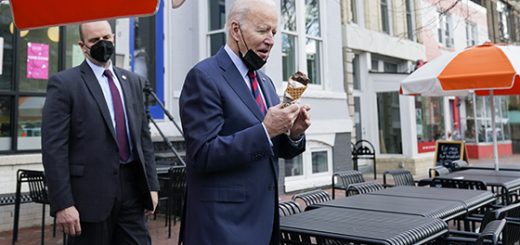Truth in (college) lending.
Listen To You Tell Me Texas Friday 6/8/18
Download
Of all the families that have either just attended or will soon be attending high school graduation ceremonies, approximately two million will soon be sending their young graduates off to a four-year college.
A very high percentage of those graduates will soon be signing documents that will enslave them for the rest of their lives.
Let me explain.
In the 20th century sociologists and policy makers began to take note of the fact that generally speaking, those with college degrees earn more than those with only a high school diploma.
From that observation arose a societal belief in the value of college. As time passed, that belief morphed into obsession. Today, very nearly every middle school kid is told that he or she must go to college in order to have a good life. State and federal education policy is singularly focused on promoting college as the immediate follow-up to high school.
Armed with an obsessional belief in college for every kid, the federal government began guaranteeing student loan debt so that kids of average means could afford the cost of college. As borrowing for college became easier, kids who once would not have been able to afford college began enrolling. Demand for college began to greatly exceed supply, thus raising costs at a rate several times that of inflation.
Today, the federal government is not just a guarantor, it is the actual lender. In most cases, when an 18-year old takes out a student loan, he or she is borrowing directly from Uncle Sam.
Thus millions of students graduate under a mountain of debt holding, in a distressing percentage of cases, degrees of dubious economic value. As high minded as a philosophy degree or a gender studies degree may sound to some, there is little marketplace demand for those possessed of such credentials.
We therefore find ourselves every day being served a caramel macchiato latte or otherwise being attended to at retail by a deeply indebted young man or woman whose degree qualifies him or her for little more than minimum wage. Absent going back to school to learn a trade or otherwise acquire some employable skill, they’re stuck. That loan document that the admissions counselor at college had that 18-year old sign is, in effect, a document of lifetime indenture to the federal government. As a matter of morality, before a kid signs such a document, that kid should know what he’s getting.
By law, a home mortgage or a car loan has a truth in lending statement attached to it. The same should be true of a college loan. The document should set forth the average annual earnings of every field of study offered at that college and project the time and percentage of income necessary to pay the proposed college loan back. To do less is academic malpractice.
In other words, give a kid making a lifetime decision at least the same protections as those afforded someone buying a used car.









My wife and I know a family where the daughter got a degree in harp playing, only to find no demand for harp players when she graduated. She then got another degree and is a successful architect. There are plenty of occupations that pay well and don’t require a college education. There was a time when we worked our way through college. That’s what I did, and I graduated with zero debit. There is value in going to college, but it isn’t the best choice for everyone. In the long run, ongoing experience teaches one more than can ever be gotten out of a college education. Lastly, the quality of a college education isn’t what it once was–liberalism has seen to that.
I feel sorry for young men and women today who are suckered into crushing debit in the name of a degree that often isn’t worth the paper it is written on.
Having a college degree today doesn’t have the same meaning it did back in the 50’s and 60’s and those people back then who worked their way through college actually worked for something. I feel sorry for kids today who feel like they have to go into debt to receive a degree, most of which are truly worthless out in the real world.
I attended high school in the 70s and when one became a junior, you came to a fork in your educational road and chose which way you wanted to go, one led to courses that prepared the student for college, the other led to courses in trades.
It was understood back then, that not everyone was meant to go to college and it had NOTHING to do with level of intelligence but in interest and aptitude.
Now everyone is shoehorned into the college route whether they have the enthusiasm and proficiency or not because there’s no other choice.
Fortunately, thanks to celebrities such as Mike Rowe and John Raztenberger promoting blue collar trade jobs, state legislators and school administrators are slowly working to, again, give high school students more than just one career path..